
Hermann Karl Hesse was a German-Swiss poet, novelist, and painter. Although Hesse was born in Germany's Black Forest region of Swabia, his father's celebrated heritage as a Baltic German and his grandmother's French-Swiss roots had an intellectual influence on him. He was a precocious, if not difficult child, who shared a passion for poetry and music with his mother, and was especially well-read and cultured, due in part to the influence of his polyglot grandfather.

René Karl Wilhelm Johann Josef Maria Rilke, known as Rainer Maria Rilke, was an Austrian poet and novelist. Acclaimed as an idiosyncratic and expressive poet, he is widely recognized as a significant writer in the German language. His work is viewed by critics and scholars as possessing undertones of mysticism, exploring themes of subjective experience and disbelief. His writings include one novel, several collections of poetry and several volumes of correspondence.
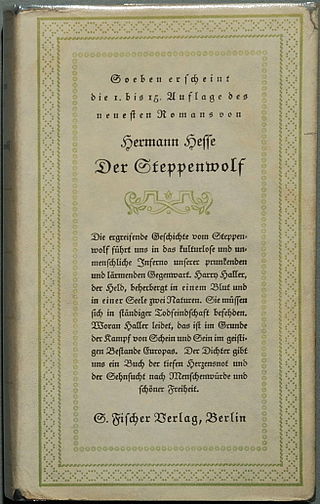
Steppenwolf is the tenth novel by German-Swiss author Hermann Hesse.

Siddhartha: An Indian novel is a 1922 novel by Hermann Hesse that deals with the spiritual journey of self-discovery of a man named Siddhartha during the time of the Gautama Buddha. The book, Hesse's ninth novel, was written in German, in a simple, lyrical style. It was published in the United States in 1951 by New Directions Publishing and became influential during the 1960s. Hesse dedicated the first part of it to the French writer Romain Rolland and the second part to Wilhelm Gundert, his cousin.

Elisabeth of Wied was the first Queen of Romania as the wife of King Carol I from 15 March 1881 to 27 September 1914. She had been the princess consort of Romania since her marriage to then-Prince Carol on 15 November 1869.

The Glass Bead Game is the last full-length novel by the German author Hermann Hesse. It was begun in 1931 in Switzerland, where it was published in 1943 after being rejected for publication in Germany due to Hesse's anti-Fascist views.
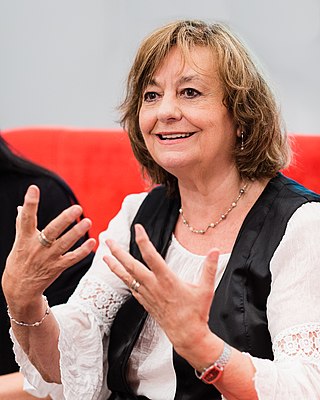
Ana Blandiana is a Romanian poet, essayist, and political figure. She took her name after Blandiana, near Vințu de Jos, Alba County, her mother's home village.

New Directions Publishing Corp. is an independent book publishing company that was founded in 1936 by James Laughlin (1914–1997) and incorporated in 1964. Its offices are located at 80 Eighth Avenue in New York City.

Poems is a collection of 31 poems written by the German author Hermann Hesse between 1899 and 1921. They were selected and translated to English by James Wright in 1970 from Die Gedichte, which was published in German in 1953. This collection was first published in 1971.
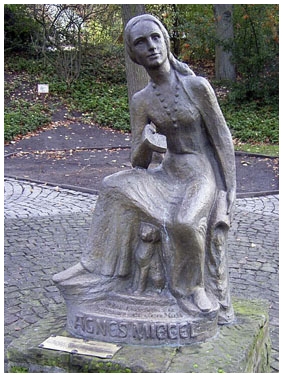
Agnes Miegel was a German author, journalist and poet. She is best known for her poems and short stories about East Prussia, but also for the support she gave to the Nazi Party.

Eugen Diederichs was a German publisher born in Löbitz, in the Prussian Province of Saxony.

The Duino Elegies are a collection of ten elegies written by the Bohemian-Austrian poet Rainer Maria Rilke. He was then "widely recognized as one of the most lyrically intense German-language poets", and began the elegies in 1912 while a guest of Princess Marie von Thurn und Taxis at Duino Castle on the Adriatic Sea. The poems were dedicated to the Princess upon their publication in 1923. During this ten-year period, the elegies languished incomplete for long stretches of time as Rilke had frequent bouts with severe depression—some of which were related to the events of World War I and being conscripted into military service. Aside from brief periods of writing in 1913 and 1915, he did not return to the work until a few years after the war ended. With a sudden, renewed burst of frantic writing which he described as a "boundless storm, a hurricane of the spirit"—he completed the collection in February 1922 while staying at Château de Muzot in Veyras, Switzerland. After their publication in 1923, the Duino Elegies were soon recognized as his most important work.

Gudrun Zapf von Hesse was a German book-binder, calligrapher and typographer.
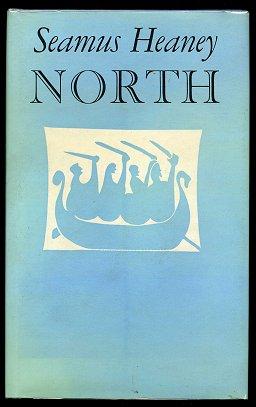
North (1975) is a collection of poems written by Seamus Heaney, who received the 1995 Nobel Prize in Literature. It was the first of his works that directly dealt with the Troubles in Northern Ireland, and it looks frequently to the past for images and symbols relevant to the violence and political unrest of that time. Heaney has been recorded reading this collection on the Seamus Heaney Collected Poems album.

Friederike Mayröcker was an Austrian writer of poetry and prose, radio plays, children's books and dramatic texts. She experimented with language, and was regarded as an avant-garde poet, and as one of the leading authors in German. Her work, inspired by art, music, literature and everyday life, appeared as "novel and also dense text formations, often described as 'magical'." According to The New York Times, her work was "formally inventive, much of it exploiting the imaginative potential of language to capture the minutiae of daily life, the natural world, love and grief".
Hermann Karl Lenz was a German writer of poetry, stories, and novels. A major part of his work is a series of nine semi-autobiographical novels centring on his alter ego "Eugen Rapp", a cycle that is also known as the Schwäbische Chronik.
Mark Sergeyevich Kharitonov was a Russian novelist, poet, essayist, and translator. He was awarded the first Russian Booker Prize in 1992 for his novel Lines of Fate.

Helene Theodora Voigt-Diederichs was a German writer.
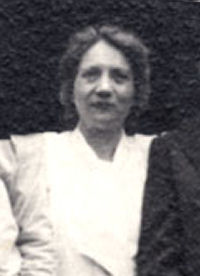
Jean Starr Untermeyer was an American poet, translator, and educator. She was the author of six volumes of poetry and a memoir. She was married to the poet Louis Untermeyer from 1906 to 1926.
Helene Brehm was a German school teacher, poet, and author.

















